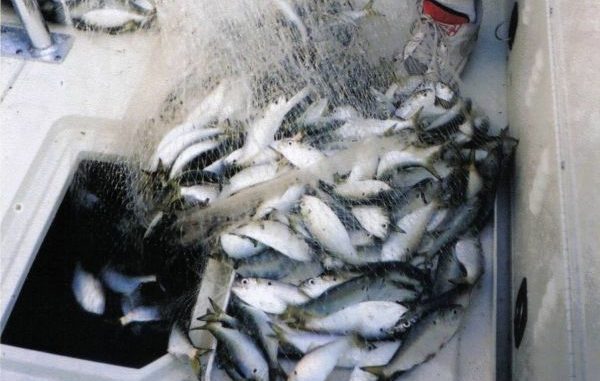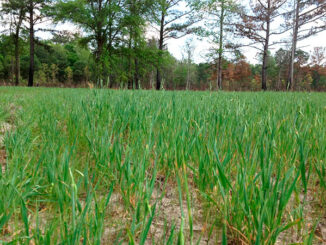
Fisheries management is lacking for Atlantic menhaden
Atlantic menhaden are referred to as the most important fish in the sea in large part due to their importance in the diet of many marine predators. Managing Atlantic menhaden for maximum abundance rather than maximum yield is a critical first step in marine ecosystems management.
By having an abundant food source, many of the fish species so important to the local economies of our coastal communities, can increase and thrive. Fisheries so critical to North Carolina such as king mackerel, cobia, red drum, sharks, flounders, and others depend on Atlantic menhaden as food throughout their lives. Additionally, many important commercial and recreational fisheries depend on Atlantic menhaden as bait.
The management strategy best suited for the maximum value of Atlantic menhaden and in the best interest of North Carolina is a precautionary and risk averse approach that recognizes the value these fish play in our coastal ecosystem and economy. In addition to valuable fisheries, many species of sea birds and marine mammals such as bottlenose dolphin and large whales depend on an abundant Atlantic menhaden stock for their survival. At present, however, Atlantic menhaden are managed for maximum yield with the current quota set at 410 million pounds, with 85% going to one state. Reductions in harvest along with a re-allocation of the fishery to support critical coast-wide bait needs while properly managing this resource is a win-win for the vast majority of stakeholders, especially North Carolinians, including our valuable, natural marine resources.
I’m writing to commend the Atlantic States Marine Fisheries Commission (ASMFC) for moving toward ecosystem-based management of Atlantic menhaden and urge you to support the adoption of “ecological reference points” in the upcoming Amendment 3 to the Interstate Fishery Management Plan for Atlantic Menhaden. The critical decision is whether to immediately begin managing Atlantic menhaden through existing guidelines for forage fish species until specific ecological reference points are developed for Atlantic menhaden or continue down what I feel is a failed, single species management path.
The Atlantic States Marine Fisheries Commission is poised to fully protect the menhaden’s critically important role in the marine ecosystem through Amendment #3 to the Atlantic menhaden Fishery Management Plan. Sound and defensible science supports managing menhaden so that they can fulfill their role in the ocean food web, and ensure the population never drops below levels that are too risky for the ecosystem. Such action would help keep Atlantic menhaden’s many predators well-fed, promote increased menhaden abundance from Maine to Florida, and ensure bait availability to many important fisheries. This critical first step in coast-wide ecosystems management needs your help.
If you are so inclined, please take a few minutes to draft a letter or email in support of ecosystems management of Atlantic menhaden to the Atlantic States Marine Fisheries Commission. To insure long term ecological health of our valuable coastal ecosystem, I would ask for your support for Issue 1, Option D that begins ecosystems management right away. The full document is available at www.asmfc.org and the email address for comments is comments@asmfc.org with the subject line: menhaden PID.
The most important fish in the sea needs your help.
Tim Gestwicki
CEO / North Carolina Wildlife Federation



